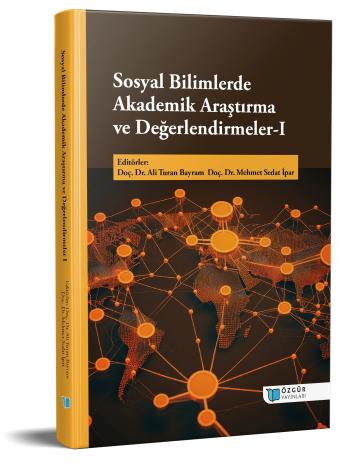
Depremin Ardından: Travmatik Deneyimin Anlamlandırılma Süreci ve Kültürel Bağlamları
Şu kitabın bölümü:
Bayram,
A.
T.
&
İpar,
M.
S.
(eds.)
2023.
Sosyal Bilimlerde Akademik Araştırma ve Değerlendirmeler - I.
Özet
6 Şubat 2023 tarihinde, saat 04:17 ve 13:24'te merkez üssü Kahramanmaraş olan 7.7 ve 7.6 büyüklüğünde yıkıcı bir deprem meydana gelmiştir. Bu felaket 11 ili etkilemiş, 55.000'den fazla kişinin ölümüne ve yaklaşık 110.000 kişinin yaralanmasına yol açmıştır. Deprem, 36.000'den fazla bina ve işyerinin yıkılmasıyla ülke tarihindeki en büyük felaket olarak kayıtlara geçmiştir. Bu deprem, beklenildiği gibi yalnızca ani bir yıkıma yol açmakla kalmamış 14 milyona yakın insanın yaşamında çok önemli değişiklikleri de başlatmıştır. Bu geniş çaplı yıkım, doğal olarak hem toplumsal yapıda hem de depremden etkilenenlerin ruhsal dünyalarında inkâr edilemez derin izler bırakmıştır. Bu etkilerin yansımalarını derinlemesine incelemek, toplumsal yapının sağlıklı bir şekilde devam etmesinde oldukça önemli rol oynayacaktır. Bu nedenle araştırmanın metodolojisi olarak fenomenolojik desen kullanılarak nitel bir keşif gerçekleştirilmiştir. Görüşmeler, Adıyaman, Hayat ve Kahramanmaraş illerinden Konya’ın Akşehir ilçesine göç etmiş 23 kişilik bir grupla yarı yapılandırılmış görüşme formu kullanılarak gerçekleştirilmiştir. Bu araştırmadan elde edilen bulgular, depremden etkilenenlerin zihinsel dünyalarına ilişkin çeşitli iç görüleri ortaya koymayı hedeflemektedir. Katılımcılar, deprem anı ve sonrasında ölümün yadsınamaz varlığını hatırladıklarını, psikolojik açıdan travmaya yol açan üzücü hatıralardan etkilendiklerini ve yaşananları afet öncesi hayatları hakkında iç gözlem yapmalarına neden olan ilahî bir işaret olarak yorumladıkları üzerinde durmaktadırlar. Bu çarpıcı ifşaatlar, deprem gibi büyük ölçekli olayların kapsamlı bir sosyolojik analizinin gerekliliğini vurgulamaktadır. Bu sebeple afet sonrası çalışmaları bireysel psikolojik travma değerlendirmeleriyle sınırlandırmak yerine, uzun süreli yansımalarının gelecek nesilleri etkileme ihtimali göz önüne alınarak kolektif travmatik deneyimleri de ele almak son derece önem arz etmektedir.

